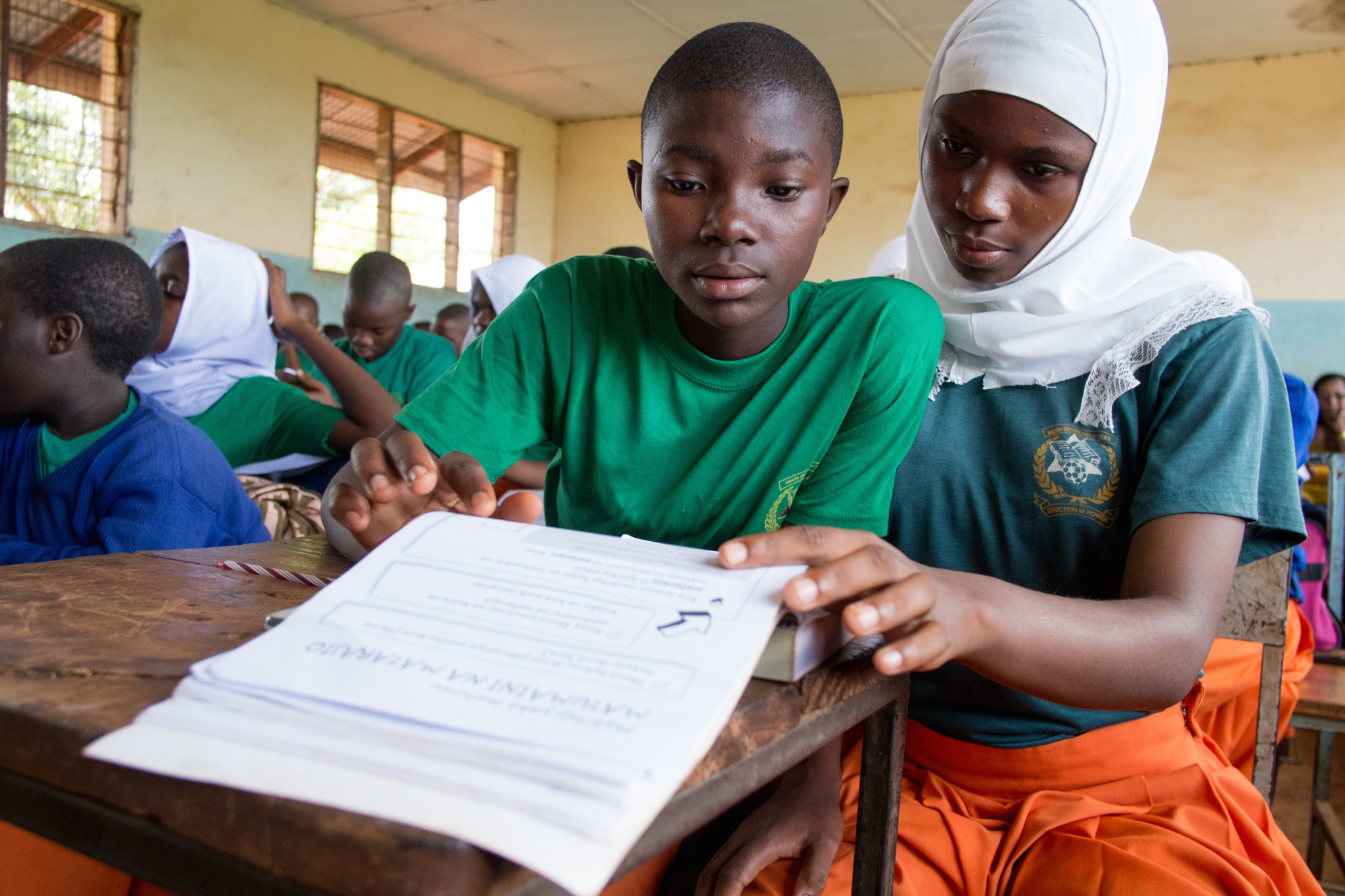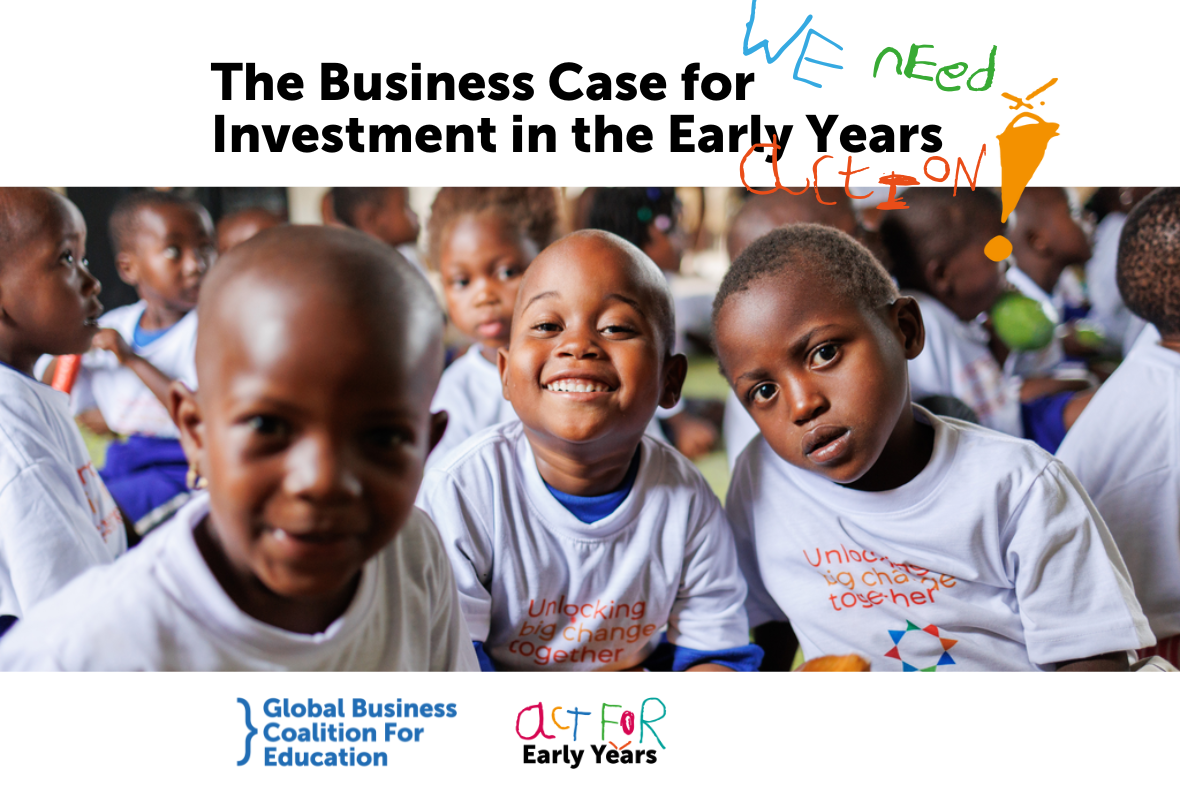
Pearson Extends Partnership with Camfed to Improve Girls’ Education in Africa

Theresia, 16, and Salma, 17, read the My Better World textbook in class at a Camfed partner secondary school in Bagamoyo, Tanzania. Photo credit: Camfed, Daniel Hayduk.
This press release originally appeared at https://www.pearson.com/news/media/news-announcements/2017/02/pearson-extends-partnership-with-camfed-to-improve-girls-educati.html
New Pearson BTEC Recognizes Key Vocational Skills of Young Women Once Marginalized
London, UK, 20 February 2017 – Pearson, the world’s leading learning company, is scaling up its partnership with NGO Camfed to help improve learning access and outcomes for girls from low-income communities in countries in rural Africa, including Zimbabwe and Tanzania.
The Camfed ‘Learner Guide’ programme, developed in partnership with Pearson, is being extended in Tanzania to support an extra 6,400 children in 80 schools. Through the programme, trained young women graduates return to their local schools to deliver vital life skills lessons to marginalised children. To complement this, Pearson is now awarding BTEC qualifications for Camfed’s Learner Guide alumnae. Pearson is also launching an employee fundraising campaign, which it will match, to help send girls to secondary school.
Speaking ahead of a special launch event at Pearson’s London headquarters, Kate James, Chief Corporate Affairs and Global Marketing Officer at Pearson said: “In large parts of Africa, upwards of 40% of children are living in poverty and not receiving an education or gaining the crucial skills needed to get a job. Together with Camfed we’re determined to play a role in helping improve the life prospects and career opportunities for young people in Africa – with a particular focus on empowering young girls.”
Camfed CEO, Lucy Lake said: “Our partnership with Pearson has opened up opportunities among some of the most marginalised young people around the world. The BTEC qualification for Learner Guides is opening up new pathways to enhance young women’s employability and access to further education, and provides an important example of what’s possible in the drive to achieve the ambitions of the Sustainable Development Goals.”
4,332 young women have already been trained as Camfed Learner Guides in Zimbabwe, Tanzania and Ghana. They volunteer in 1,009 government schools, reaching 250,000 students. Learner Guides, who are important female role models and mentors to vulnerable children, deliver the uniquely tailored “My Better World” life skills curriculum, developed by Camfed in partnership with Pearson and young people in rural Africa. It complements the academic curriculum, ensuring that young people build the self-knowledge, confidence, and problem-solving skills they need for a life of independence and entrepreneurship in a context of soaring youth unemployment.
The first 567 Learner Guides have just earned a tailored Pearson BTEC Level 3 Advanced Diploma for their work in Zimbabwe. Pearson has committed to certifying thousands more. Sinikiwe Makove, who joins Kate James and Lucy Lake at the event, has worked with many of them, and brings to the event the stories of these activists and entrepreneurs. In return for volunteering, Learner Guides gain access to interest-free micro loans to start local businesses, and are using their profits and experience to assist the younger generation to go to school.
Ahead of the launch event, Sinikiwe Makove said: “I see the change in the young women and the girls they support. They grow in confidence, they have new tools to shape their lives. Learner Guides are becoming leaders and philanthropists. Lindiwe, for example, now runs an innovative drinks business – the first Camfed alumna whose business is registered with the Zimbabwean government. Through her profits she supports more children to go to school. And as one of the first BTEC recipients, she is now able to pursue her dream of becoming a fully qualified teacher. Imagine thousands more trained female teachers, who understand all the barriers to education imposed by poverty – they will make all the difference for children in rural Zimbabwe.”
Related Insights


